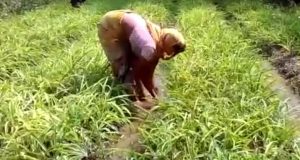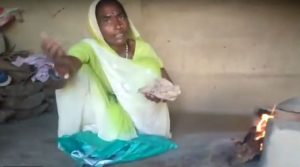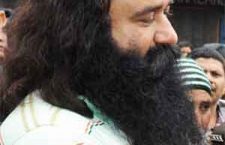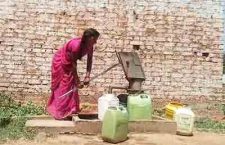The sorry state of women farmers in rural Bundelkhand, examined up-close with a day-in-the-life-of from a village in Jhansi
“She is a woman, so she’ll do all the work. She’ll get up at the crack of dawn, before anyone else, finish all the cooking, send the kids to school. She’ll work in the fields, she’ll come home and wash all the clothes. She’ll also make time for cleaning and other household chores.” In the short span of a breathless rant, she has perfectly summarized not just her own typical day, but the archetype of the woman farmer.
Her name is Ramvati and she lives in Khujurao Bujurg village in the district of Jhansi. We have found her after weeks of groundwork and preparation in and around these parts, because women farmers are aplenty, but vocal ones are few and far between. “If the husband comes home drunk, he hits us also”, she adds, like a last straw to her fuming rant. The “gharelu hinsa”, Ramvati qualifies is as insidious as it is deliberate. “He can tell us to get lost, get out of the house, if he’s very angry. He owns everything, after all – the farm, the house.”
It does not matter then that Ramvati, the most hard-working individual on those very fields, is akin to mere worker status, perhaps worse off. Only 13% of women in the country own the land they work. The farms are never in their names – the reason why women are not even called farmers officially; the term that usually goes around is farm worker. Complement that with the other mind-boggling statistic – that 60-80% of all farming work is done by women – and the dismal state of affairs becomes 100% lucid.
Ramvati vociferously lists out the multi-pronged nature of the problem, “Gents get all the rights. It is assumed that the land will be in his name after his father’s death. I mean it is legal, these are the inheritance laws. So what does that leave us with? Nothing.” Or a whole lot of promises, she says, which come every five years. “Each time, during the elections, we’re told again and again that we will be getting our rights also. That we will finally be acknowledged as farmers also. And it all comes to nought as soon as the campaigning is over.”
“Hamaari sunvaai bhi ho, hamare behnon ki bhi,” she says, even as our interview is paused – somewhat indefinitely – so Ramvati can tend to a sick relative at their house. Because yes, everyone’s medical issues are her issues too. It is assumed, much like the sun rising every morning with a little too much fire in the badlands of Bundelkhand, that if someone falls ill at home, then the woman must take charge in her “natural” role as care-giver. Added domestic responsibilities however do not take away from her role in the fields where she is mostly assigned what are referred to as “donkey’s jobs” – the hard labour of sowing, seeding, threshing, harvesting, ploughing. Unfortunately, the skills that are involved in each of these tasks are not talked about often, or often enough. At the ground level, they are not even considered, and it is stuff of common understanding that the man is the one bringing the special skills required of a farmer. At the local galla mandis too women farmers face serious discrimination, and are often offered raw deals, often laced with sexual harassment – to which no legal recourse is ever sought or granted. As Ramvati says, “Neither do we have the empowerment that comes with information, nor is anybody interested in giving it to us. Who wants to ensure a woman’s rights?”
In a landscape where the plight of farmers is an ever-deteriorating one, with the entire nation on the brink of, or in the midst of, one of the worst agrarian crises it has faced, the one of women farmers is about living the very specific dual hell of being a woman and a farmer – a life of unparalleled forbearance and unmitigated thanklessness.
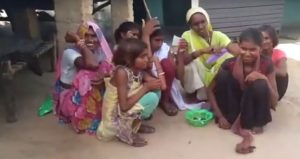
All domestic duties, including taking care of the children, are also on Ramvati’s never-ending daily to-do list
And this despite the truth that Revati says, matter-of-fact, as a woman farmer, “Women are not less than men. Do you say they are qual? No, they are more, much more – they are far greater. In their work. In everything.”
